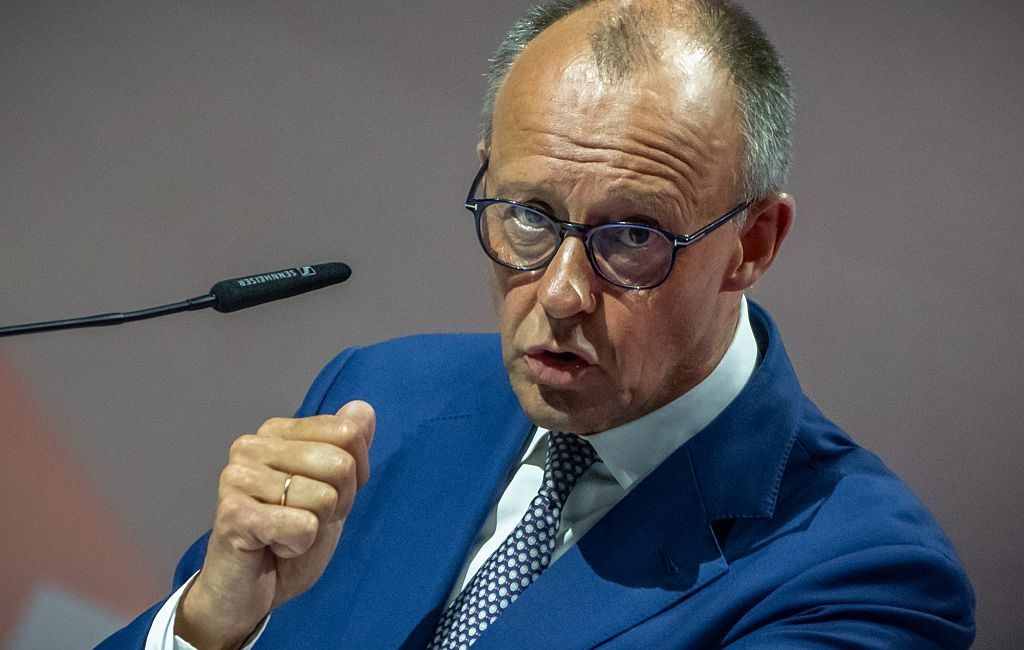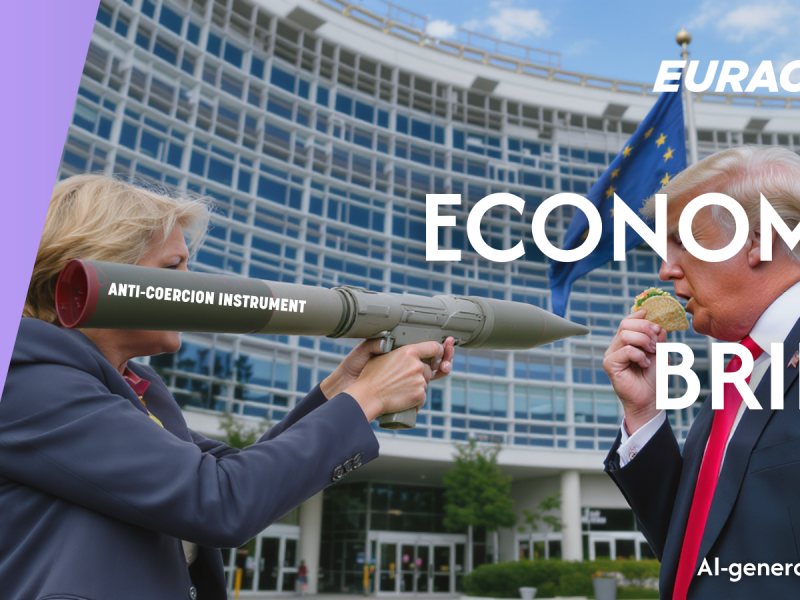Germany has urged the European Commission to threaten to use its much-vaunted “trade bazooka” on the US, marking a sharp escalation of the EU-US trade war and a stunning reversal of Berlin’s previous call for a “quick and simple” deal with Washington.
The comments come just days before Donald Trump’s threatened 30% tariff on EU goods is set to enter into force on 1 August, which would triple the current baseline 10% levy faced by European exporters and upend the €1.6 trillion transatlantic trade relationship.
“As we are now in the final phase of negotiations, the right time has come from the perspective of the German government for the Commission to consider the use of this anti-coercion instrument (ACI),” a senior German government official said on Wednesday.
“I believe, seven days before the end of the negotiations, one should also show what one can do,” the official added.
The ACI – the EU’s most powerful trade weapon – would legally empower the Commission, which oversees EU trade policy, to impose a wide range of retaliatory measures on the US, including investment restrictions, the withdrawal of intellectual property protections, and tariffs on goods as well as services.
The bloc has already pledged to retaliate on €93 billion worth of US goods, which Brussels said on Wednesday would enter into force on 7 August if no negotiated deal is reached. The Commission has also said it is preparing retaliatory measures targeting US services, but has not yet presented any list to member states for consideration.
The EU ran a €50 billion net trade surplus with the US last year, with a €198 billion surplus in goods and a €148 billion deficit in services, according to EU data.
In addition to the current 10% baseline, Trump has imposed a 50% tariff on steel and aluminium and a 25% duty on cars and car parts since returning to the White House in January.
The auto tariff has severely exacerbated the woes of Germany’s flagship auto sector, which is already reeling from weak demand and increasingly fierce Chinese competition.
In remarks that were widely interpreted as suggesting that Berlin could accept the 10% baseline in exchange for auto tariff exemptions, German Chancellor Friedrich Merz said earlier in July that Brussels should seek to clinch a “quick and simple” rather than “lengthy and complicated” deal with Washington.
The German official’s remarks also follow multiple reports suggesting that Germany has become increasingly sympathetic to France’s repeated calls for Brussels to take a tougher line on Washington if no deal is agreed.
The Financial Times reported earlier on Wednesday that Berlin had “joined forces” with Paris in calling for the activation of the ACI, whose use is still opposed by a majority of the bloc’s 27 member states.
Triggering the instrument requires the support of a “qualified majority” of EU countries, or 15 countries representing at least 65% of the bloc’s population.
The German official, however, downplayed any differences between Germany and France’s negotiating positions.
“There was never a disagreement about the harshness of the response among the main partners of the EU, including between Germany and France,” the official said. “It was always a question of timing.”
(mm)

